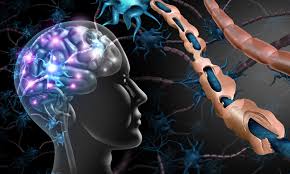Is MS an Autoimmune Disease
Nov 18, 2023 By Marie White
While multiple sclerosis (MS) is considered an immune-mediated illness, this does not always mean it is also an autoimmune disease. The study on the subject is rather contradictory, with several authorities suggesting that multiple sclerosis does not adhere to the conventional criteria of a typical autoimmune illness.
A particular autoantigen is a fundamental criterion that must be met for a condition to be called an autoimmune illness, as stated in an article published in Autoimmune Diseases. An autoantigen is a substance found inside the body mistaken by the immune system for a foreign material. This causes the immune system to "attack" the autoantigen.
To this day, multiple sclerosis has not been linked to the presence of a single autoantigen. In addition, several investigations conducted on animals have produced contradictory findings regarding antigens, immune cells, and other parameters; these findings call into doubt the categorization of multiple sclerosis. Even though study on the topic has produced inconsistent results, most scientists, physicians, and other medical experts still consider MS an autoimmune disorder.
Something We Are Not Yet Completely Aware Of
Despite the significant strides made in MS research over the last several decades, there is still a great deal that we do not understand about the condition. For instance, the onset of multiple sclerosis (MS) is a convoluted process, and researchers are not yet wholly certain in understanding what triggers the illness. Yet, the current agreement among scientific community members points to aspects connected to a person's genetics, immune system, and environment.
In addition, multiple sclerosis is a highly personalized illness, which means that the therapy and management of the condition might differ from one individual to the next. For instance, a range of possible triggers might lead to a relapse, but the manifestations of these triggers often vary from person to person. In the end, there is still much more to learn about the complexities of multiple sclerosis (MS). Still, researchers continue to make strides daily in improving our knowledge of this disorder.
How Does MS Affect The Body?
Those who have multiple sclerosis have an immune system that, for some reason, assaults the central nervous system, thereby causing damage to:

- the myelin sheath is the protective covering that surrounds and shields the nerve fibers of the central nervous system
- the fibers of the nerves
- the cells that are responsible for producing myelin
It is more difficult for the nerves of the central nervous system to transmit and receive information when the patient has multiple sclerosis because the disease causes damage to the nerves, the myelin, and the cells that produce the myelin. This, in turn, results in decline in the functioning of the central nervous system, which causes a broad range of neurological symptoms. Some symptoms are typical of multiple sclerosis (MS), but the symptoms that an individual experiences might differ from person to person based on the stage of the illness, the course of the disease, and other factors. This can include:
- bowel problems
- depression
- emotional disturbances
- diminished taste
- dizziness
- cognitive disturbances
- dysphagia
- tingling
- fatigue
- hearing loss
- dysesthesia
- respiratory problems
- itching
- muscle spasticity
- numbness
- pain
- seizures
- sexual dysfunction
- vision disturbances
- speech changes
- tremor
- trouble walking
- vertigo
- weakness
Types Of MS
There are four primary types of multiple sclerosis. Variations in recurrence, remission and the intensity of symptoms are what differentiate one kind from another:
Clinically isolated syndrome
The clinically isolated syndrome (CIS) is the first episode of multiple sclerosis (MS), in which early nerve damage generates neurological symptoms.
Relapsing-remitting MS
Relapsing-remitting multiple sclerosis (RRMS) is characterized by repeated periods of relapse when symptoms of MS are at their worst and remission when symptoms of MS improve.
Secondary-progressive MS
Recurring episodes of relapse characterize SPMS, followed by periods of partial remission and gradually declining functionality as the illness advances.

Primary-progressive MS
"Primary progressive multiple sclerosis" (PPMS) refers to multiple sclerosis that worsens with time and does not experience real recoveries or remissions between attacks.
Takeaway
Multiple sclerosis (MS) is a disease that is immune-mediated and is defined by damage to the neurons that are located inside the central nervous system. While multiple sclerosis (MS) is classified as an autoimmune illness by many medical experts, recent research reveals that this classification may not accurately describe the disorder.







